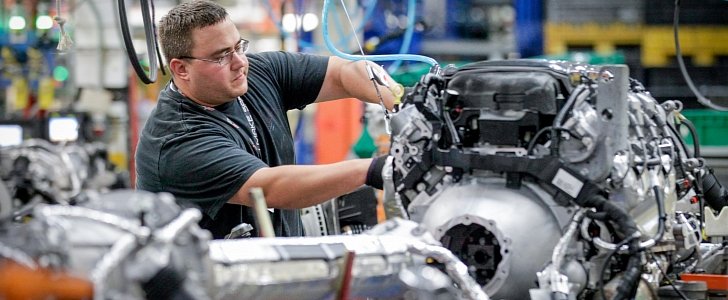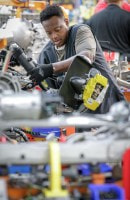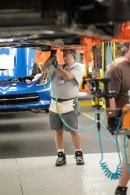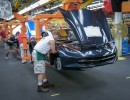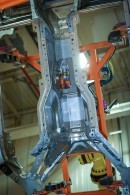The third automaker worldwide as far as sales are concerned, it’s fairly hard to manage a business as big as General Motors. As a little refresher, don’t forget how hard it was for the U.S. automaker to resuscitate itself following the Chapter 11 reorganization of 2009. Although a different animal from what is colloquially referred as Old GM, present-day General Motors is not without its hiccups.
In a bid to streamline its operations for the sake of profit, Chevrolet as a brand will be phased out from two markets by the end of 2017. The writing was on the wall bearing in mind Chevrolet had a similar fate in Europe in 2016, where it was replaced by the Opel and UK-only Vauxhall brands.
“As the industry continues to change,” declared Mary Barra, “we are transforming our business, establishing GM as a more focused and disciplined company.” The chairman and CEO also declared that the automaker remains “committed to deploying capital to higher return initiatives that will enable us to lead in our core business and in the future of personal mobility.”
The markets in question are India and South Africa. The former, which is represented by GM India, will transition to produce cars exclusively for export. The production facility located in Talegaon will continue manufacturing vehicles for three important markets: Mexico, Central and South America.
In South Africa, Isuzu agreed to purchase the automaker's 30% share in Isuzu Truck South Africa, the Struandale plant and a handful of other facilities. Given these circumstances, General Motors and Groupe PSA are in the middle of evaluating future opportunity for the Opel brand in this part of the world. Chevy, however, is due to disappear in the Eastern Africa region too.
Stefan Jacoby, who is the president of GM International and executive VP of General Motors, has the following explanation in store: “We determined that continued or increased investment in manufacturing in South Africa would not provide GM the expected returns of other global investment opportunities.”
Restructuring will further extend to Singapore. In this part of the world, the automaker intends to cut back on the responsibilities of the local business. Strategic oversight of the company in regional markets such as Australia, New Zealand, South Korea and Southeast Asia, and India will continue.
“As the industry continues to change,” declared Mary Barra, “we are transforming our business, establishing GM as a more focused and disciplined company.” The chairman and CEO also declared that the automaker remains “committed to deploying capital to higher return initiatives that will enable us to lead in our core business and in the future of personal mobility.”
The markets in question are India and South Africa. The former, which is represented by GM India, will transition to produce cars exclusively for export. The production facility located in Talegaon will continue manufacturing vehicles for three important markets: Mexico, Central and South America.
In South Africa, Isuzu agreed to purchase the automaker's 30% share in Isuzu Truck South Africa, the Struandale plant and a handful of other facilities. Given these circumstances, General Motors and Groupe PSA are in the middle of evaluating future opportunity for the Opel brand in this part of the world. Chevy, however, is due to disappear in the Eastern Africa region too.
Stefan Jacoby, who is the president of GM International and executive VP of General Motors, has the following explanation in store: “We determined that continued or increased investment in manufacturing in South Africa would not provide GM the expected returns of other global investment opportunities.”
Restructuring will further extend to Singapore. In this part of the world, the automaker intends to cut back on the responsibilities of the local business. Strategic oversight of the company in regional markets such as Australia, New Zealand, South Korea and Southeast Asia, and India will continue.
